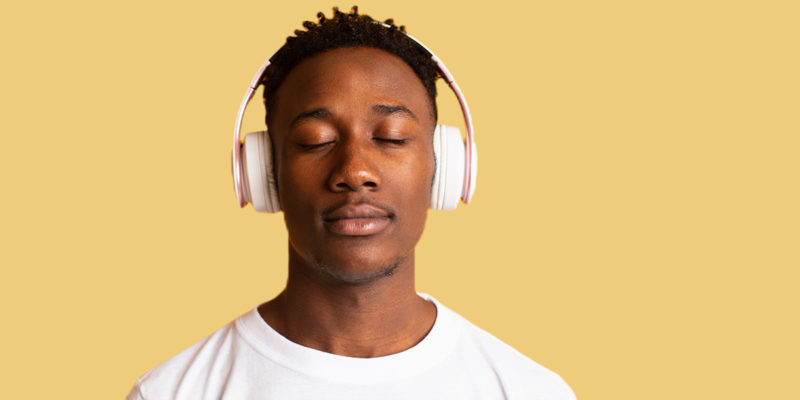Side Effects of No Sleep: What You Need To Know

How many hours of sleep do you get every night? Five? Six? Seven?

According to the National Institutes of Health (NIH), adults need at least seven to eight hours, and teens needs a minimum of nine to 10 hours. Younger children can require even more than that. Data from the 2005-2007 National Health Interview Survey reports however that around 30% of adults sleep six hours each night or even less. Across the pond, the British National Health Service (NHS) reports similar figures; one in three Britons suffers from sleep deprivation.
Lacking sleep is a serious matter. The American Centers for Disease Control (CDC) goes far enough to call insufficient sleep a “public health epidemic.” The side effects are physical, psychological, and sociological. Poor sleep has an impact on our health, our work, our relationships, and our general well-being.
Why are so many people sleep-deprived in today’s modern world?
A recent study suggests one of the main culprits may be work. Working adults literally run out of time. The 9-5 working model may be by far the most common one, but it is far from the healthiest. According to Dr. Mathias Basner, assistant professor of sleep and chronobiology in psychiatry at the University of Pennsylvania Perelman School of Medicine, “Work is the No. 1 sleep killer.”
Discover in 7 questions why you have problems sleeping at night, if you have insomnia, and uncover proven ways to sleep better. Take The Sleep Quiz Now!
In this article, you can read about a survey of 125,000 Americans. Researchers conducting the study discovered that those who slept six hours or less on weekdays worked 1.55 hours more each on weekdays. They also worked an additional 2 hours on weekends and holidays.
On top of that, adults with multiple jobs were 61% more likely to sleep six hours or less. Those with long commutes also chose to forego sleep.
When you work eight hours a day or more and spend two more hours commuting in heavy traffic, that only leaves you 14 hours to sleep, eat, and live the rest of your life. At least several hours of that is probably taken up by errands and chores, which only leaves you with a couple of hours to yourself. It is really easy to be tempted to forego sleep so you can catch up on the rest of your life. And if you work more than eight hours a day? You may not even have time to do anything else.
Students face these same difficulties.
Even though students do not have to hold down a job and pay the bills, most students spend just as many hours in school each day, and may spend the same length of time afterwards working on homework assignments.
By the time they are done with their homework each night, they may only have time to sleep for a few hours.
In the same article referenced above, you can read about two teens who were being evaluated for narcolepsy. It turned out they simply weren’t getting enough sleep!
Distractions and More
Here are some other reasons you may be missing out on sleep:
- There are ample distractions that prevent us from sleeping. Some people literally do not like to sleep, and prefer to spend the nighttime hours engaged in other activities like watching television, surfing the web, or working on hobbies.
- Poor sleep hygiene. Sleep hygiene refers to the factors in your environment and the behavioral choices you make that relate to sleep. If your environment is noisy or uncomfortable or too bright or chaotic, you can easily lose sleep. If you do not keep a regular routine and take time to wind down before going to bed, you may suffer from insomnia. Caffeine, alcohol, and drug use may create problems sleeping too.
- Stress, anxiety, and life changes can all take a toll on sleep schedules. Trying to adjust to college or transition to adulthood can cause issues, as can personal problems.
Even though you may feel helpless to tackle your sleep problems, it is important that you do what you can to get as much of your necessary sleep as possible. Why? Let’s take a look at some of the consequences if you don’t!
Physical Effects of No Sleep
First, let’s see what the short-term and long-term effects of sleep deprivation are on your body systems.
Bonus: Download This 7-Day Sleep Reset that will show you exactly how to tackle your worst sleep problems quickly.
- Central nervous system impaired: Your central nervous system relays all the information in your body. Sleeping gives your brain a chance to repair and form new pathways, and also release necessary hormones to regulate your body processes. When you don’t sleep, your central nervous system can’t do these necessary things, and your entire body and mind suffer as a result.
- Slow healing: While you sleep, your body produces proteins which you need to repair damage to your cells. This is why you recover so much from injuries when you sleep. If you deprive yourself of that necessary rest, your wounds will heal more slowly.
- Immune system dampened: Just as you tend to recover from injuries more while you sleep, you also probably have noticed there is nothing like a good night’s rest to help you beat an illness. Your immune system produces antibodies when you sleep. When you can’t sleep, your immune system loses functionality. This can have serious short- and long-term consequences.
- Sleep deprivation is a risk factor for obesity: Your body produces less leptin when you don’t sleep. Leptin is the hormone that tells you that you are full. To add to that, your body produces more of a chemical called ghrelin, which tells you that you are hungry—even if you aren’t. So when you don’t get enough sleep, you feel hungry all the time, and you may overeat. A study in the American Journal of Clinical Nutrition indicates that sleep deprived people consume an average of 559 extra calories a day!
- Falling asleep when you don’t want to: Over time, if you build up enough of a sleep deficit, you may start falling asleep at random moments. This can even happen while you are walking or having a conversation or working. In fact, a phenomenon known as “microsleep” can set in, where you fall asleep for seconds or minutes at a time, without even knowing it happened at all. This can be extremely dangerous, and is a major cause of accidents worldwide. Not having a clue what you are doing or having any control over your actions is pretty scary.
- General pain and discomfort: Sleep deprivation can cause headaches, cold symptoms, dizziness, nausea, and general unpleasantness. When you don’t get enough sleep, you simply don’t feel like yourself. You may even wonder at times if you are sick or if you have some other bigger chronic problem.
Over time, these short-term effects can accumulate, leading to long-term serious health problems including heart disease, irregular heartbeat, heart attack, high blood pressure, stroke, hormonal imbalance, and diabetes. Yes, depriving yourself of sleep over time can actually lead to death.
Psychological Effects of No Sleep
All of those are good reasons on their own to get plenty of sleep every night, but the effects of no sleep go far beyond your body. Here are some of the side effects on your mind and behavior:
- Higher stress: When you do not get enough sleep, your body produces more cortisol. Cortisol is the stress hormone. When your body produces excess cortisol, you may also start suffering from other hormonal imbalances, which can affect your mood and lead to issues with chronic pain.
- Problems with memory and concentration: You may have a hard time focusing on even simple tasks when you are lacking sleep, and you may also start forgetting things. You may feel like you are operating in a kind of cognitive fog. This can impact your creativity as well as your problem-solving abilities. No matter what industry you work in, it can lead to performance issues. And if you are a student? It makes it very hard to focus and learn the material.
- Anxiety and depression: When you do not get enough sleep, you can easily start developing symptoms of anxiety and depression. If you are a chronic sufferer of either, you are playing with fire here, because you can easily make your condition worse and trigger a really bad episode.
- Poor judgment, slow reflexes, and general foolishness and impulsiveness: According to a study in Nature, within just 24 hours of sleep deprivation, cognitive performance declines to someone who has had about five drinks. When you are sleep-deprived, you may as well be inebriated.
- Low libido: Patients in studies have reported lower sex drive when they are sleep deprived. This applies to both men and women.
- Insomnia: Ironically, when you are sleep deprived, it can be harder to sleep. Sometimes the fatigue in your body keeps you awake, because you are physically and psychologically so uncomfortable.
- Hallucinations and psychosis: If you are chronically sleep deprived or have been deprived of sleep for a long acute period, you can start hallucinating. Essentially you are dreaming while you are wake. This can lead to behavioral changes as well. Add in depression and anxiety, and you have a recipe for a very disturbed state of mind, and even suicidal behavior.
Further Ramifications of No Sleep

Not only can you have a hard time concentrating and remembering when you do not get enough sleep, but this study from the CDC indicates that sleep deprivation can have extended effects on your life. The physical and psychological problems created by sleep deprivation can lead to difficulties with employment and more.
- You may actually find yourself achieving less when it comes to personal projects and hobbies. While you may think that sleeping less is allowing you to create more time for these projects, odds are your performance will lag so far behind you will actually get less done in that time. This is something of a catch-22, but skipping out on shut-eye isn’t the solution.
- You may struggle with finances. Budgeting is a challenge even in the best of times, but it can be very hard to concentrate and make smart financial choices when you are too tired to think straight. Plus, your judgment is impaired when you are sleep-deprived, just as it is when you are inebriated. Do you really want to make financial decisions while you’re drunk? Essentially you’re putting yourself through the same thing when you are sleep-deprived.
- Sleep deprived people often find their work performance suffers. Your boss may wonder what is the matter with you and why your productivity is declining. You may find yourself getting negative evaluations or even being fired from your job.
- Personal relationships can suffer too. Even though you may think that you are freeing up time for relationships by skipping out on sleep, you may actually be making things worse. Why? All those psychological problems that come out of being sleep-deprived can start feeding negatively into your relationships. There can be serious consequences later down the line. Once again, poor judgment can cause you to say and do foolish things.
While all of these side effects are bad enough, perhaps the worst side effect of all is endangerment to others. People who are sleep deprived can make mistakes behind the wheel.
According to WebMD, the National Highway Traffic Safety Administration estimates fatigue is a factor in around 100,000 automotive accidents each year.
Sometimes the consequences can be fatal.
Included in those statistics are around 1,550 deaths per year. Nor are auto accidents the only dangerous mishaps which can come about when you miss out on rest. Work-related accidents can also increase. Remember, if you are experiencing microsleep, you may be asleep and not even know it. Imagine blinking and wondering why you are suddenly in the middle of a car accident. That’s a pretty scary thought.
Looking for even more evidence of how important it is to get your sleep? Consider that at least three major disasters have been blamed partly on sleep deprivation:
- Three Mile Island in 1979
- Chernobyl in 1986
- Exxon Valdez in 1989
If the workers involved in those accidents had gotten enough shut-eye, it is possible that none of those disasters would have occurred.
How to Get More Sleep
Now that you know just why it is so important to get more sleep every night, how do you go about maximizing the amount of healthy rest you actually get? Unfortunately some things like your work schedule may be out of your control. But other choices are in your hands. Here are some ideas for getting more sleep each night:
Scheduling Sleep
- Try and think of daily routines which take up a lot of your time which you could reduce: Do you spend an hour in front of the mirror in the morning and another half hour eating breakfast? If you could get that routine down to half an hour total, you could spend another hour sleeping.
- Create a regular schedule for sleep: Going to sleep at the same time each night and getting up at the same time each morning (on weekdays) will help your body to establish rhythms and more easily fall asleep at night.
- Do use weekends to catch up on sleep if you have to: Even though this is not an ideal solution, it is better than nothing.
- Things can be extra difficult if you work a night shift or a rotating or on-call shift: If you work the night shift, take steps to make your room dark at home during the daytime when you sleep (you may want to purchase something extra to cover your bedroom window). Rotating shifts pose the most difficulty. If you have a rotating shift, the UCLA Sleep Disorders Center has some helpful advice on rotating your sleep schedule based on your upcoming shifts. Gradual changes to your sleep cycle are better than sharp, sudden changes.
Preventing Insomnia
If poor quality sleep is part of your problem and not just your sleep schedule, then you may need to take some steps to prevent insomnia.
- Consider taking some sort of sleep aid. If you can, stick with something natural which you can use safely and effectively over the long term. You want something which is not habit forming and which will work effectively over time. Many OTC medications lose their effectiveness the longer you use them. Prescription sleep aids are often habit forming.
- Give yourself the time to sleep, and try to keep your schedule as regular as possible each day. Acknowledge that sleep is important and that you need your rest.
- Keep away from caffeine as well as alcohol. Caffeine may help you feel more awake during the day, but it will keep you up at night, creating a vicious cycle. Alcohol may temporarily make you feel sleepy at night, but the kickback later can disrupt your circadian rhythms, resulting in insomnia later.
- Exercise during the day at a time which works for you. If you do not work out enough, you may feel worked up at night. Should you work out before bed? For some people it works like a charm. For others it can make insomnia worse.
- Do something relaxing for the hour before bed, and try and find a way to get your mind off of your problems. Nighttime is not a time for focusing on your woes. Anxiety can easily keep you awake at night. You have to learn to let go so that your body and mind can fall asleep. Read a book or watch a film or find some other way to focus on something other than yourself. Relaxation techniques help some insomnia sufferers. You can try meditation or breathing from your diaphragm.
- Sometimes you may need to confront the causes of your anxiety head-on, but do it during the daytime, not at bedtime when there is nothing you can do about it.
- Use good sleep hygiene. This means making sure that your environment is a comfortable one for sleep. Take care that it is not too noisy or bright; most people sleep best in total darkness with silence or white noise. If there is something else which works for you, then do it. Make sure that your mattress and pillow are comfortable and provide plenty of support. If you are physically uncomfortable, that probably explains why it is hard for you to get enough sleep.
- Try to observe other good practices for sound sleep. Try and only go to sleep when you are actually tired, and if you do not feel tired, get up and do something else for a while, something which will relax you. Use your bedroom only for sleeping purposes and do other activities in other rooms of the house, so that your brain will associate your room with sleep. Try not to nap during the day, and if you can, follow a consistent sleep schedule. Stay away from big meals late at night (light snacks are fine, and may even help), and steer clear of alcohol, caffeine, and drugs.
So there you go—you may think that missing a few hours of sleep now and again is no big deal, but if it turns into a chronic problem, it can have some serious consequences for your health and even for the safety and well-being of other people! It is well worth it to make time to rest and do what you can to make your bedroom conducive to sleep.
Whatever the causes of your insomnia, there are lots of ways you can treat insomnia, including lifestyle changes and herbal supplements. All of them can help!






